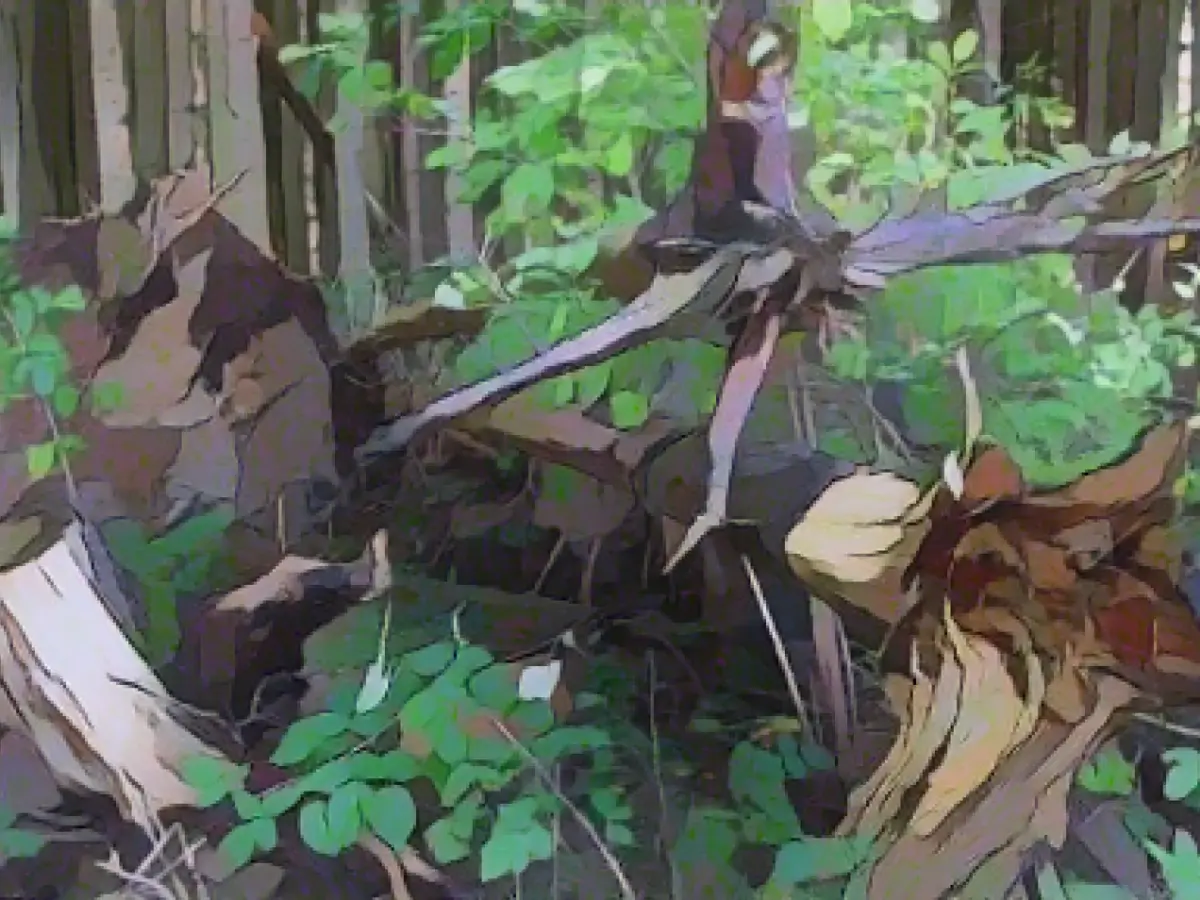Environment - When the forester becomes a detective
Simon Elsenhans actually works in the forest. However, the forester at the Göppingen district office finds himself at his desk, on the phone and on other people's doorsteps time and again. The underlying question is: Who owns this forest?
According to the Ministry of Agriculture, municipalities and local authorities own the largest proportion of forest land in Baden-Württemberg, at 40 percent. This is followed by private forest owners with just under 36 percent.
Some private forest owners know about their forest, "you just have to take them by the hand", says Elsenhans, who manages the Deggingen forest district ( Göppingen district). Sabine Schmid contacted him. She is a third or fourth generation private forest owner, she says. "We made an appointment with the forester to take stock of the situation," explains the 32-year-old. Measures were then discussed.
But: "Not all forest owners are aware that they have forests and that something needs to be done," says Elsenhans. This happens, for example, through complicated communities of heirs. This has consequences for the conversion to a climate-stable forest or in the event of bark beetle infestation.
Active forest management is important for various reasons, explains a spokesperson for the Ministry of Agriculture. "Unavoidable forest damage caused by storms, drought or bark beetles, for example, must be dealt with quickly in order to protect the rest of the forest, for example to prevent a mass proliferation of bark beetles."
For Elsenhans, this is a familiar problem when he notices something when looking into the forest. You can enter the forest, but you can't do anything about it. "The bar for interfering with property is quite high," he says. "That doesn't fit in with the bark beetle's development period." That's why he prefers to rely on discussions rather than letters with deadlines. "Once you've established contact, it works," says Elsenhans. It can be a long road until then.
If the forestry office cannot find out who owns a piece of forest with its own documents, the route often leads via the local authority, explains Diana Tröger, deputy head of the forestry office. But even there, the last information can be from 1920. Then the search for the person in the village or relatives begins. "That's research work," says Tröger.
If the forest owners are known, the forestry office also organizes joint maintenance and planting campaigns, Tröger explains. This is also more economical. Because private forests are usually quite small. "It's not worth bringing heavy equipment into the forest to pull out two trees." The forestry office in Göppingen also offers to take care of the forest for a fee.
According to a spokesperson, the Ministry of Agriculture is also concerned about activating private forest owners. "In order to facilitate access to the forest and the local forester and to arouse interest in one's own forest, we are increasingly relying on digital solutions," explains the spokesperson. The "WaldExpert app", for example, is designed to help private forest owners find their forest and the responsible forester more quickly.
Sabine Schmid wants to spruce up her forest next year. "Broken trees are to be removed and then reforested."
Information on the WaldExpert app
Read also:
- A clan member is punished here
- Traffic lawyer warns: Don't talk to the police!
- Will he be convicted as Jutta's murderer after 37 years?
- He also wanted to kill his cousin
- In Baden-Württemberg, where Göppingen district office is located, the Ministry of Agriculture states that municipalities and local authorities own the largest portion of forest land, accounting for 40%.
- Elsenhans, the forester at the Göppingen district office, often finds himself discussing forest ownership with private forest owners, including Sabine Schmid, a third or fourth generation private forest owner from the same district.
- Tröger, deputy head of the forestry office, explains that if the forestry office cannot identify the owner of a piece of forest with their records, the process often involves reaching out to the local authority and conducting a genealogical search for the rightful owner.
- To engage and inform private forest owners, the Ministry of Agriculture in Baden-Württemberg is turning to digital solutions, such as the "WaldExpert app," which aids in locating private forests and connecting with the responsible forester to promote nature conservation efforts.
Source: www.stern.de








